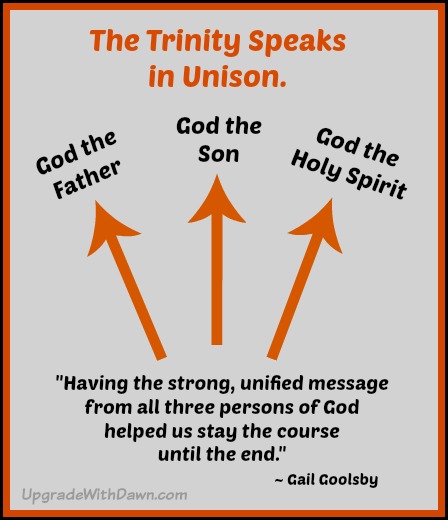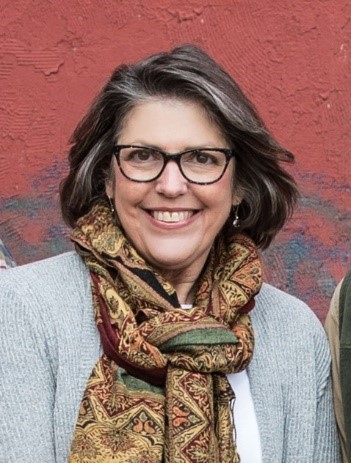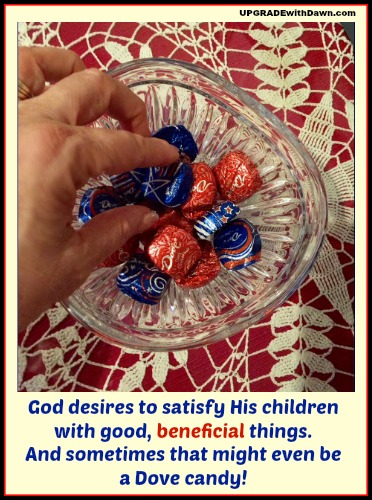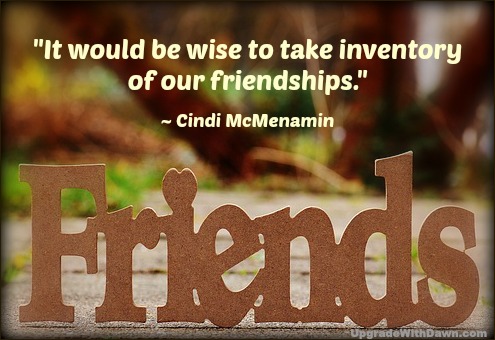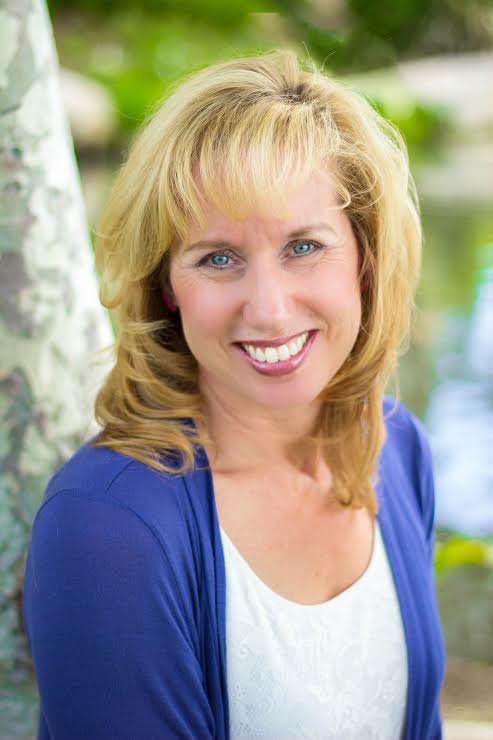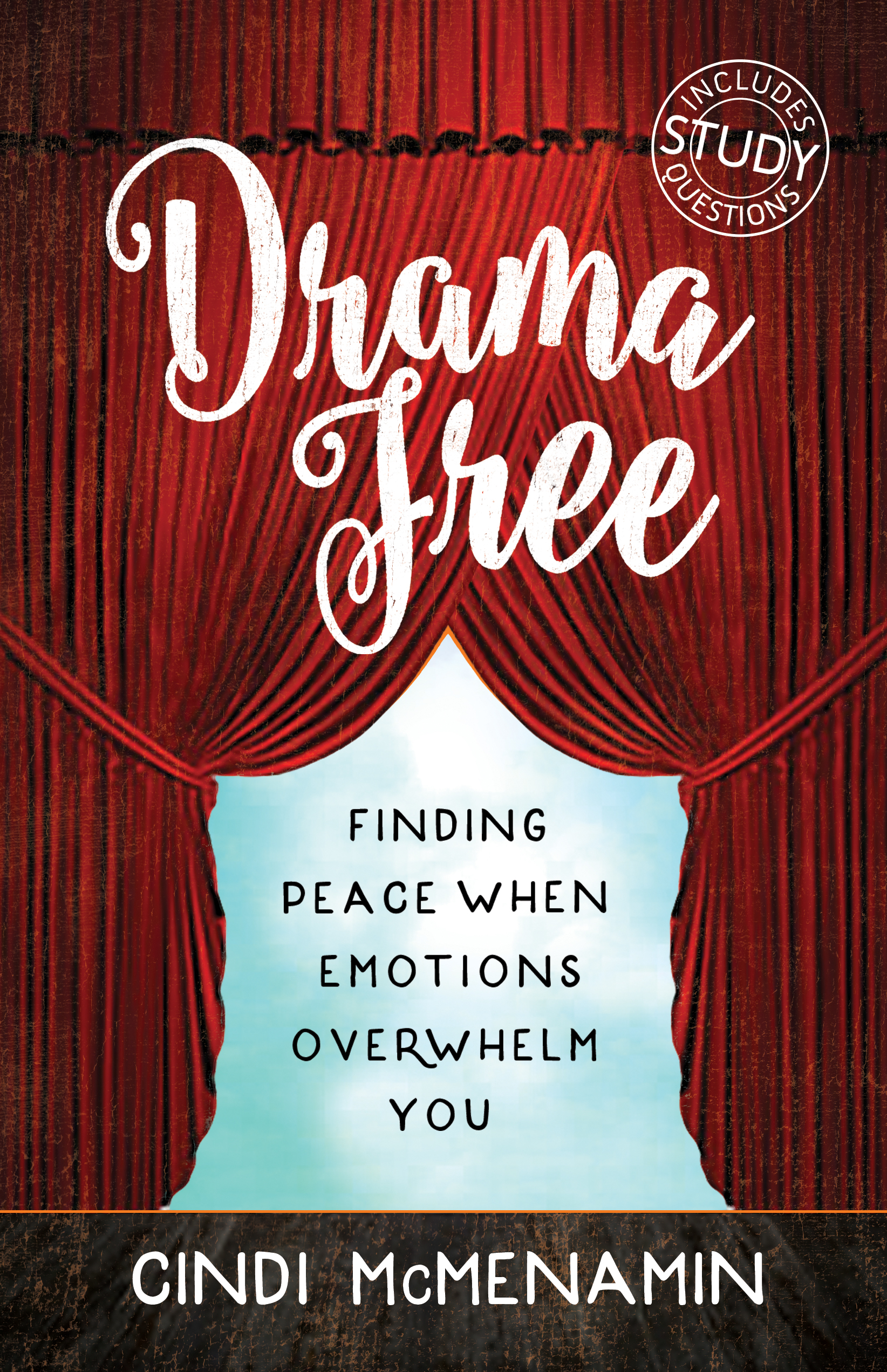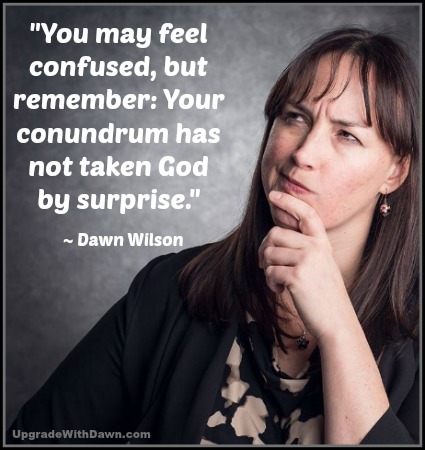Counsel Your Heart—with Truth Talk
In this Biblical Thinking UPGRADE, Dawn says we need to be careful what we say to our hearts. While we're surrounded by discouraging worldviews and perspectives, the right kind of counsel can be life-giving.

I appreciate these words by Nancy DeMoss Wolgemuth: "We should not be controlled by our circumstances or by our emotions. We need to counsel our hearts according to truth."
Nancy said those words in 2016 in the midst of a divisive, confusing and polarizing election in America. But she has said the same words many times over in various women's conferences and on the radio; and I've found the concept of "counseling our hearts" powerful and helpful in making wise choices.
"We need to go back to God's Word and remind ourselves of bedrock, solid foundational truth," Nancy says.
With a recent cancer diagnosis, I've found the need to counsel my own heart especially urgent, because I have an enemy who is doing his best to sow lies in my frightened heart.
- Lies about the goodness of God.
- Lies about my worth.
- Lies about the future.
Oh, how I need the truth of God's Word to permeate my mind and soul every day.
In an effort to counter Satan's lies, I began collecting scriptures and faithful Christians' comments about helpful Bible verses. I call my collection "Truth Talk for Hurting Hearts"—but truth talk is important to face every human need and frailty, not just when we're hurting.
The world tries to help.
Some people turn to religion, but religion without the Power Source in our lives—a living relationship with Jesus Christ—doesn't bring lasting change.
Many others turn to psychology for answers, but they may get only half-truths. For example, the sciences of the mind and good mental health promote proper "self-esteem" and "self-worth," and certainly this sounds positive. Who wouldn't want a good sense of personal worth.
But the whole truth is, without God, we are and can do nothing (John 15:4-5; Jeremiah 10:23; Galatians 6:3). Our worth is tied up in who He is, who we are in Him and what He says about us.
I am struck by Peter's words in John 6:68:
"Lord, to whom shall we go? You have the words of eternal life."
Peter understood the life-giving words of the Lord regarding his eternal soul. But the Word of God is powerful to speak to us in many other ways—not only about our salvation. We see this throughout Psalm 119.
When I was a younger Christian, I came to believe in the power of self-talk for overcoming bad attitudes, behaviors, habits and addictions.
But with maturity, I realized self-talk per se is not as important as telling ourselves the truth.
We can use self-talk to bolster our own agenda and get our own way. We may even lie to ourselves to accomplish our purposes. Instead—
God wants us to use "truth talk" to remind ourselves what He has said.
Here's how I've been counseling my own heart. Perhaps it will help others navigate the tough, confusing circumstances of life.
1. Discover the truth.
You can't discover—and apply—the truth of God's Word if you aren't reading it. Studying it. Meditating on and memorizing it.
We are to search the scriptures, looking for treasured truth about the Lord. If we seek Him, we will find Him (1 Chronicles 28:9; Matthew 6:33). We will come to know Him as He truly is, not as the culture misquotes and misrepresents Him.
2. Proclaim the truth.
To proclaim something is to announce it officially or publicly, to declare something is important and emphasize it.
Essentially, we act on the truth of God's Word when we respond to it, first by making it known.
We might speak it, write it, or share it in a post or meme. We testify to its power. We leave a legacy of truth-telling.
3. Counsel with the truth.
To counsel is to share wise advice. But for the Christian it is so much more, because we are handling the Word of God. It is treasured counsel, life-giving truth and hope-filled practical principles.
We're meant to counsel not only our own hearts, but to encourage others' hearts in their times of need as well (1 Thessalonians 5:11).
The scriptures are powerful (Hebrews 4:12) and must dwell in us "richly" (Colossians 3:16). We can trust what God has told us.
Counseling our hearts is one way to LIVE OUT the truth of scripture—to rely on and practice it in our daily lives.
I recently fought a hard battle with Satan about God's goodness.
"Why would a good God give you cancer?" my enemy said.
My recourse was to study the goodness of the Lord—my Father God's sovereign and awesome providence. I discovered deep truths about God's character, began to speak and write about those truths, and intentionally counseled my heart.
Before long, the ugly accusations ceased. Satan's attempts to make me bitter only turned into praise for God! (In other words, the devil wasn't happy.)
I know the enemy has more strategies to bring me down, but I also know the greatest resource to do battle with Satan's lies is the wonderful Word of God.
I intend to keep on counseling my heart with biblical "truth talk."
How about you? Are you struggling with a tough diagnosis? A frustrating circumstance? A disheartening relationship? An inner war that you feel you're losing? What truth from scripture can you use today to counsel your heart?
Dawn Wilson, founder and President of Heart Choices Today, is a speaker and author,  and the creator the blog, Upgrade with Dawn. She is a contracted researcher/reviewer for Revive Our Hearts and a writer at Crosswalk.com. She and her husband Bob live in Southern California and have two grown, married sons, three granddaughters and a rascally maltipoo, Roscoe.
and the creator the blog, Upgrade with Dawn. She is a contracted researcher/reviewer for Revive Our Hearts and a writer at Crosswalk.com. She and her husband Bob live in Southern California and have two grown, married sons, three granddaughters and a rascally maltipoo, Roscoe.
 Post a Comment → Posted on
Post a Comment → Posted on  Thursday, March 28, 2019 at 9:01AM
Thursday, March 28, 2019 at 9:01AM  Counsel Your Heart,
Counsel Your Heart,  Dawn Wilson,
Dawn Wilson,  Encourage your heart,
Encourage your heart,  God's Word,
God's Word,  Truth,
Truth,  Truth Talk,
Truth Talk,  Upgrade with Dawn,
Upgrade with Dawn,  Wisdom Upgrade Your Life
Wisdom Upgrade Your Life  Biblical Thinking
Biblical Thinking 




